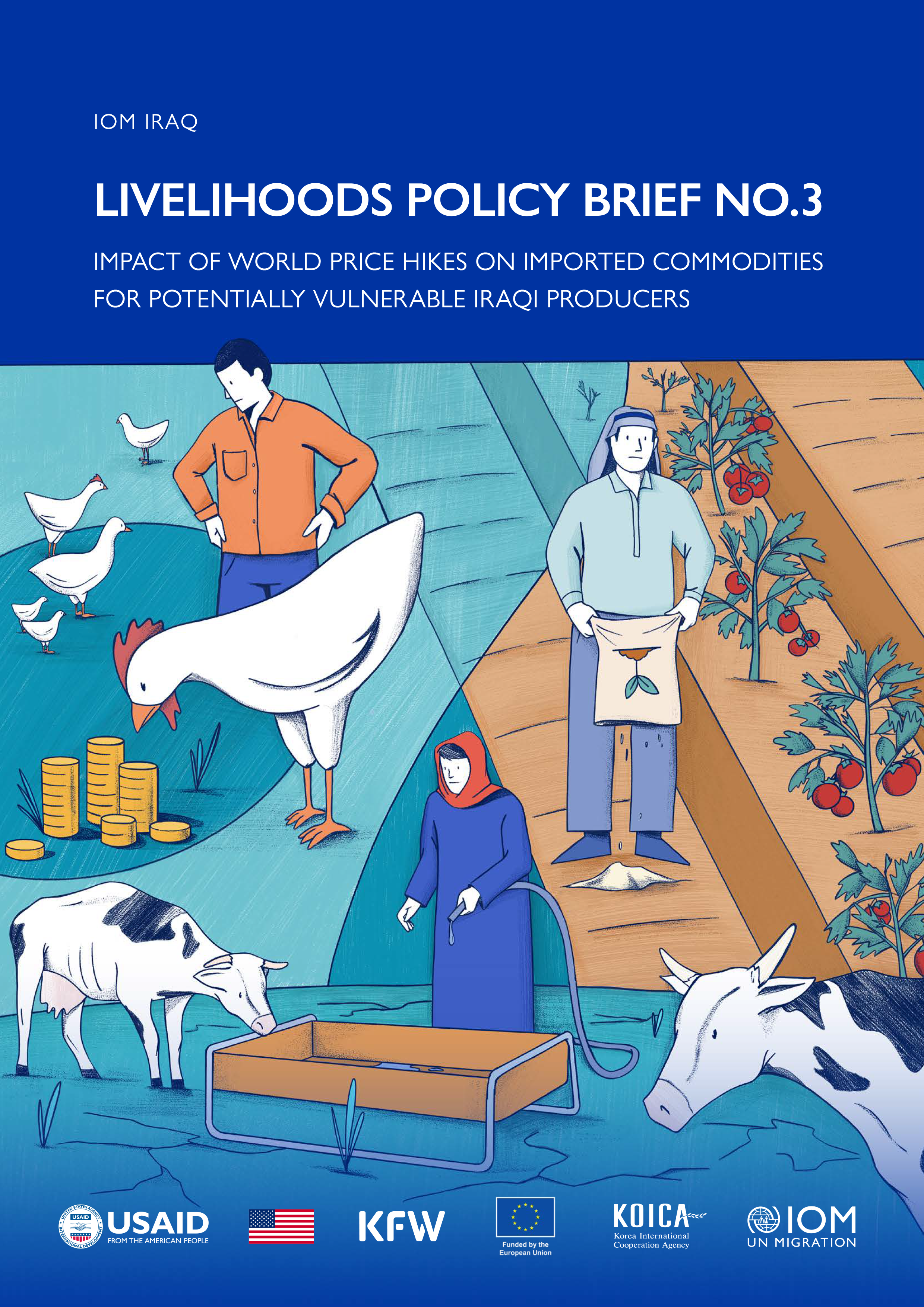Policy briefs -
Livelihoods Policy Brief NO.3

Policy briefs -
Livelihoods Policy Brief NO.3
IMPACT OF WORLD PRICE HIKES ON IMPORTED COMMODITIES FORPOTENTIALLY VULNERABLE IRAQI PRODUCERS
As of March 15, 2022, IOM estimates that approximately 20,148 individuals are displaced across 10 governorates in Iraq due to water scarcity and climatic factors.1 In 2021, Syria also experienced its worst drought in 70 years, expected to trigger further displacement of Syrians,2 of whom there are already an estimated 240,000 in Iraq.3 Low agricultural productivity due to insufficient maintenance and the minimization of costs by farmers, has been a characteristic of Iraq’s agriculture for the last two decades and has made the country dependent on imports to meet its domestic food needs. Families dependent on rainfall to produce fodder for livestock have also been affected, and in many instances displaced.5 Despite government efforts to subsidise wheat and barley value chains through the offering of higher than market prices to cereal farmers, 2021 drought conditions led the Ministry of Agriculture to approve plans to reduce agricultural cultivation on irrigated lands. Meanwhile, the occupation and blockage of Ukraine’s ports mean that even if wheat crops are harvested in Ukraine, they may not be exported. With war in Ukraine driving up world prices of wheat and maize, Iraq’s low income households face increasing prices for basic staples in 2022.6 Producers who rely on wheat, corn and barley as an input face increasing prices, and in mid-2022, are already displaying negative coping measures such as the shedding of workers and contracting of firms, which will further compound food insecurity among vulnerable jobseekers. This brief examines the impact of rising prices for wheat, corn, and fertiliser on two commodities in particular: poultry and tomatoes, with a focus on the South of Iraq, and suggests a few interventions that can be taken in the short to medium term to curb negative coping mechanisms. While the effect of the war in Ukraine has certainly been felt already on wheat, rising world prices of fertiliser could also make tomato farmers make decisions that will affect production, competitiveness, and outcomes. Coordinated actions taken now by the UN and government can help boost SME productivity in Iraq and help bolster the resilience of firms to future economic shocks.